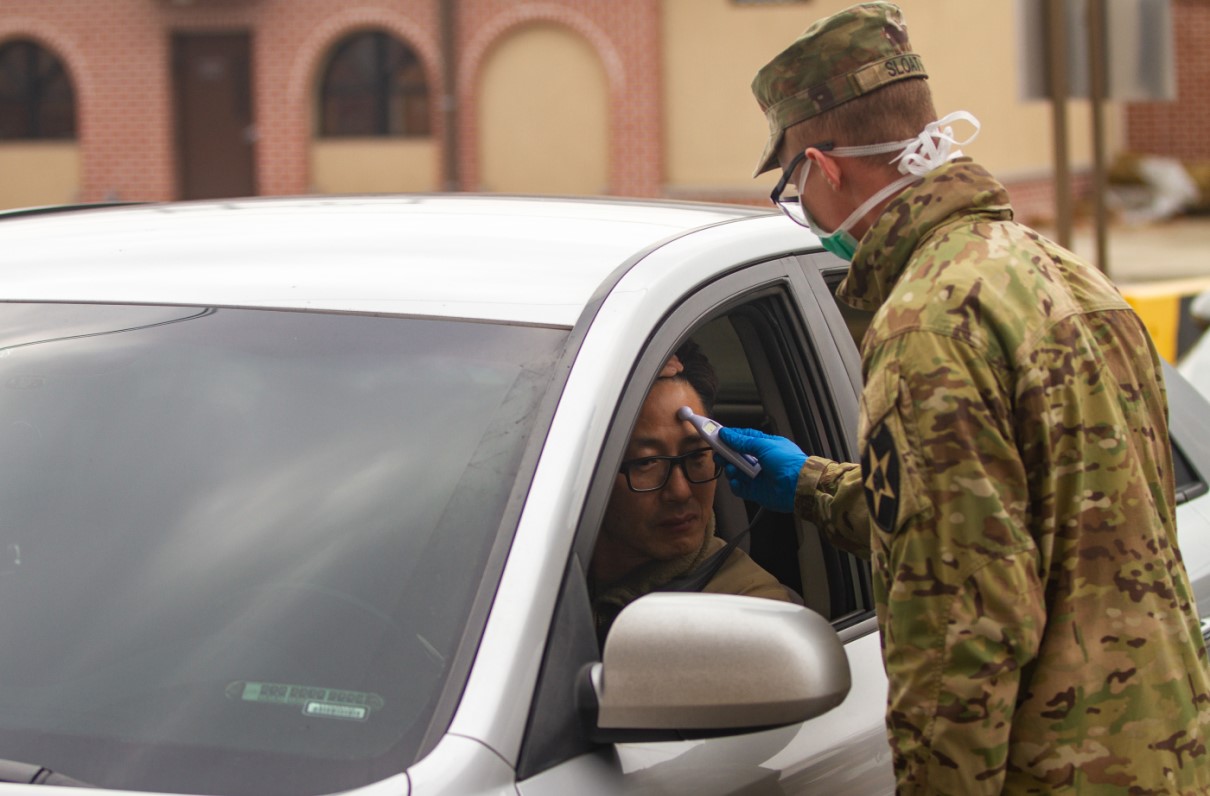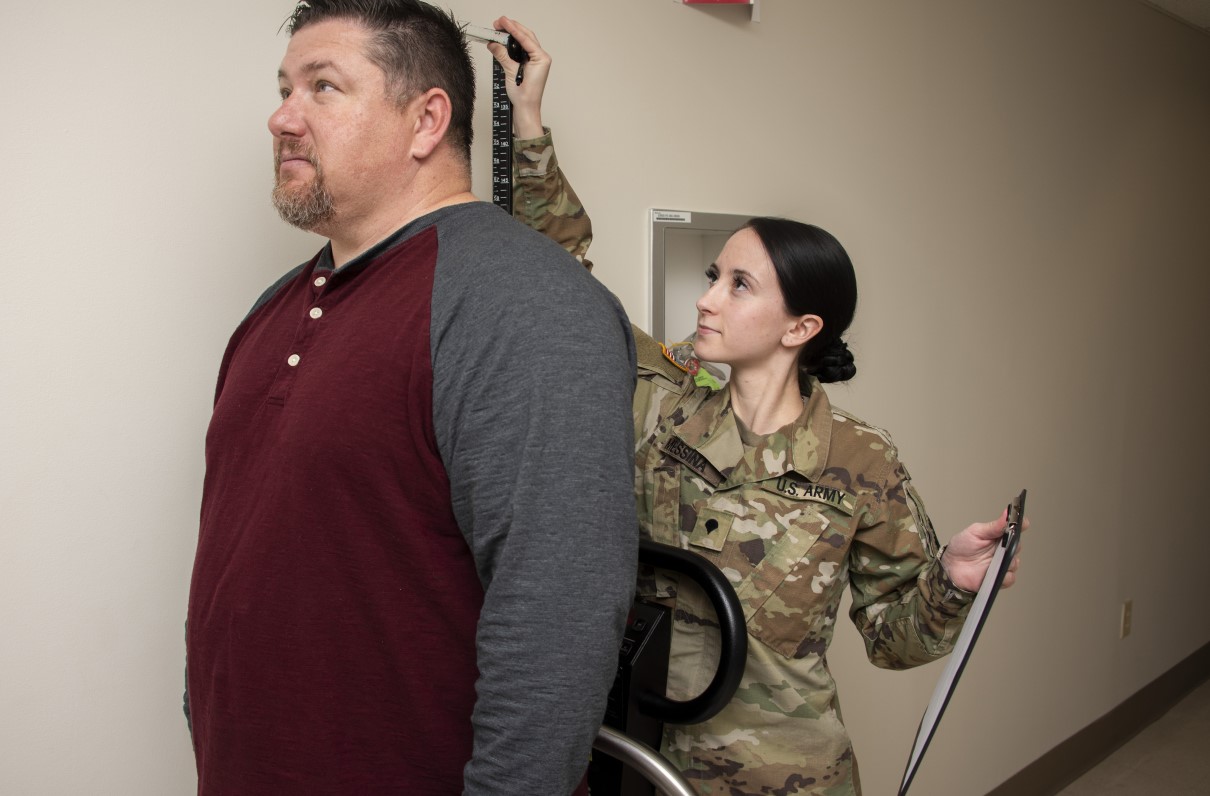This article by Hope Hodge Seck first appeared on Military.com, the premier resource for the military and veteran community.
Less than an hour after President Donald Trump announced a 30-day suspension of travel from Europe to the U.S. in an address to the nation, the Defense Department released its own list of travel restrictions for troops, military families and DoD civilians.
The restrictions, which take effect March 13, include a 60-day ban on travel to all countries designated as "Level 3 locations" by the Centers for Disease Control and Prevention due to the widespread and ongoing transmission of coronavirus. Those countries include China, where the virus originated, as well as Italy, Iran and South Korea.
"This restriction includes all forms of travel, including Permanent Change of Station, Temporary Duty, and government funded leave," the Defense Department announcement states. "The Level 3 countries are set by the CDC and may change. The DoD guidance will follow those changes. Service secretaries and commanders may issue waivers to this policy as they determine necessary to ensure mission readiness and address specific cases."
According to a Pentagon memo, military travelers are advised to plan trips with care, making sure they don't make stopovers in Level 3-designated locations.
"Authorized Departures are delayed until appropriate transportation and reception procedures are in place for their intended route of travel as prescribed in this memorandum," the memo states.
Also in place as of March 13 is a 60-day prohibition on official travel to "Level 2 locations" for military families and civilian personnel. These locations, for which the CDC advises taking advanced precautions, include the United Kingdom, Japan, Singapore and Bahrain. Bahrain, which houses the headquarters for U.S. Naval Forces Central Command, is a hub for thousands of U.S. troops and DoD civilians.
Coronavirus Resources
- Coronavirus.gov
- Centers for Disease Control and Prevention Coronavirus Website
- CDC Advice for Higher-Risk Individuals
- VA Coronavirus Website
- TRICARE Coronavirus Information
- DoD Coronavirus Response Website
- Health.mil Coronavirus Information
- Military OneSource Coronavirus Resources
- National Institutes of Health Coronavirus Information
- From MOAA: What You Need to Know About the CARES Act
- Latest Coronavirus News from Military.com
- Latest Coronavirus News from Military Times
The travel restrictions also entail a hiring freeze: for civilians awaiting hiring actions for jobs in Level 2 and 3 locations, those actions will be paused, as long as the jobs are designated non-essential and travel has not already begun.
The individual Defense Department components must also make determinations about whether travel plans to non-Level 3 locations are mission essential, and postpone them if they are not.
Exceptions to these restrictions are intended to be rare: waiver requests must prove extreme hardship, a mission-essential purpose, or necessity based on humanitarian reasons. And these requests can only be granted at the general or flag-officer level.
"The Department of Defense's top priority remains the protection and welfare of our people," Secretary of Defense Mark Esper said in a released statement. "While directing this prudent action, I continue to delegate all necessary authority to commanders to make further decisions based on their assessments to protect their people and ensure mission readiness. While we deal with this fluid and evolving situation, I remain confident in our ability to protect our service members, civilians and families."
[RELATED AT MILITARY.COM: This Is the Pentagon's Guidance for Virus-Related PCS Delays]
For required travel to countries designated Level 2 or 3, military officials plan to "implement enhanced health care protocols for traveler safety" and use military or contracted aircraft rather than commercial transit, according to the announcement.
For all Defense Department personnel who have recently passed through Level 2 or 3, countries, an across-the-board 14-day self-monitoring period at home will be observed, officials said. That policy will be reviewed at the end of the 60-day period. For those who live in barracks or other open-bay housing arrangements, separate lodging will be arranged and funded by the DoD component to which they are assigned.
The memo also urges individual DoD organizations to "take immediate action" to establish communication systems with all personnel, and establish "pre- and post-travel screening and reception procedures" for those with approved travel plans. A separate memo notes that those traveling on military aircraft will get a temperature check and answer a questionnaire at the point of embarkation to screen for symptoms and risk of exposure.
Coronavirus, known formally as COVID-19, was declared a pandemic by the World Health Organization earlier March 11. In the United States, public gatherings of all kinds are being cancelled, while virus-affected Italy is observing a national shutdown in efforts to slow the spread of the disease.
Other articles by Military.com:
More Navy Ships Headed to South, Central America to Stop Drug-Trafficking
Some US Soldiers Now Authorized to Wear Combat Patch for Somalia Deployments


